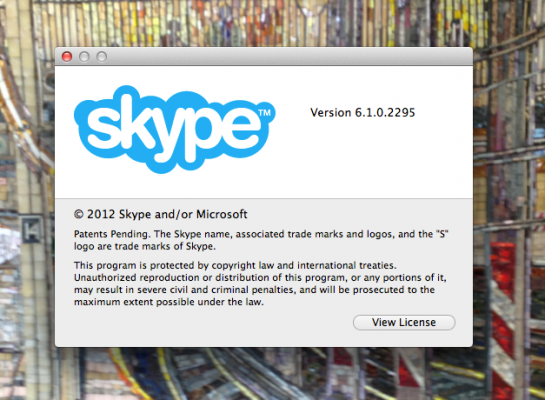“Can you hear me now?
“Is that any better?”
“How about now?”
In recent times, the above three phrases are heard frequently emanating from various rooms in our apartment, where my wife and I both work as full-time freelancers.
Skype is an essential part of both of our respective businesses. We do work for clients in various countries, and being able to interact with them by phone at a low, predictable cost is essential if we are to live and work where we do – in a sunny apartment just minutes from the coast of Portugal’s Algarve.
Skype is, on the face of it, perfect for us. It provides us with London telephone numbers, which shield our physical location and make it inexpensive for UK clients to contact us. Skype also offers a range of all-inclusive call packages allowing us to call clients abroad without bankrupting ourselves.

Or at least that’s the idea.
For reasons unknown to us, the incidence of poor quality Skype calls seems to be on the increase. Now, as a techie, I know that we have a good, fast broadband connection with low latency. I also know that nothing has changed at our end since the days when we could use Skype with only very rare quality problems.
Yet, for some reason, it now seems that (more often than not), people are having trouble hearing us. Usually, this only happens for 10 seconds or so, before a high quality connection returns, but in the meantime we have to go through the whole “can you hear me now?” routine.
When I’m chatting with my mother in the UK, this is acceptable (while still infuriating). After all, I’m able, thanks to Skype, to spend hours talking to her at a very low price. It’s not, however, good enough when working with clients, especially prospective new clients. Sometimes it takes new clients some convincing that our geographical location is irrelevant. If our first few phone conversations keep cutting out, it doesn’t really create a good initial impression.
So, despite a long and happy relationship with Skype, I’ve felt forced to start investigating alternative Voice over IP services, and it’s a shame because when Skype works, it works incredibly well.
Sadly though, until I find a suitable replacement, I’ve had to switch back to a very old-fashioned strategy: If I’m calling an important client, I walk into the study and pick up the landline phone. The bills are unwelcome, but so too would be the loss of a paying customer.

Leave a Reply
You must be logged in to post a comment.